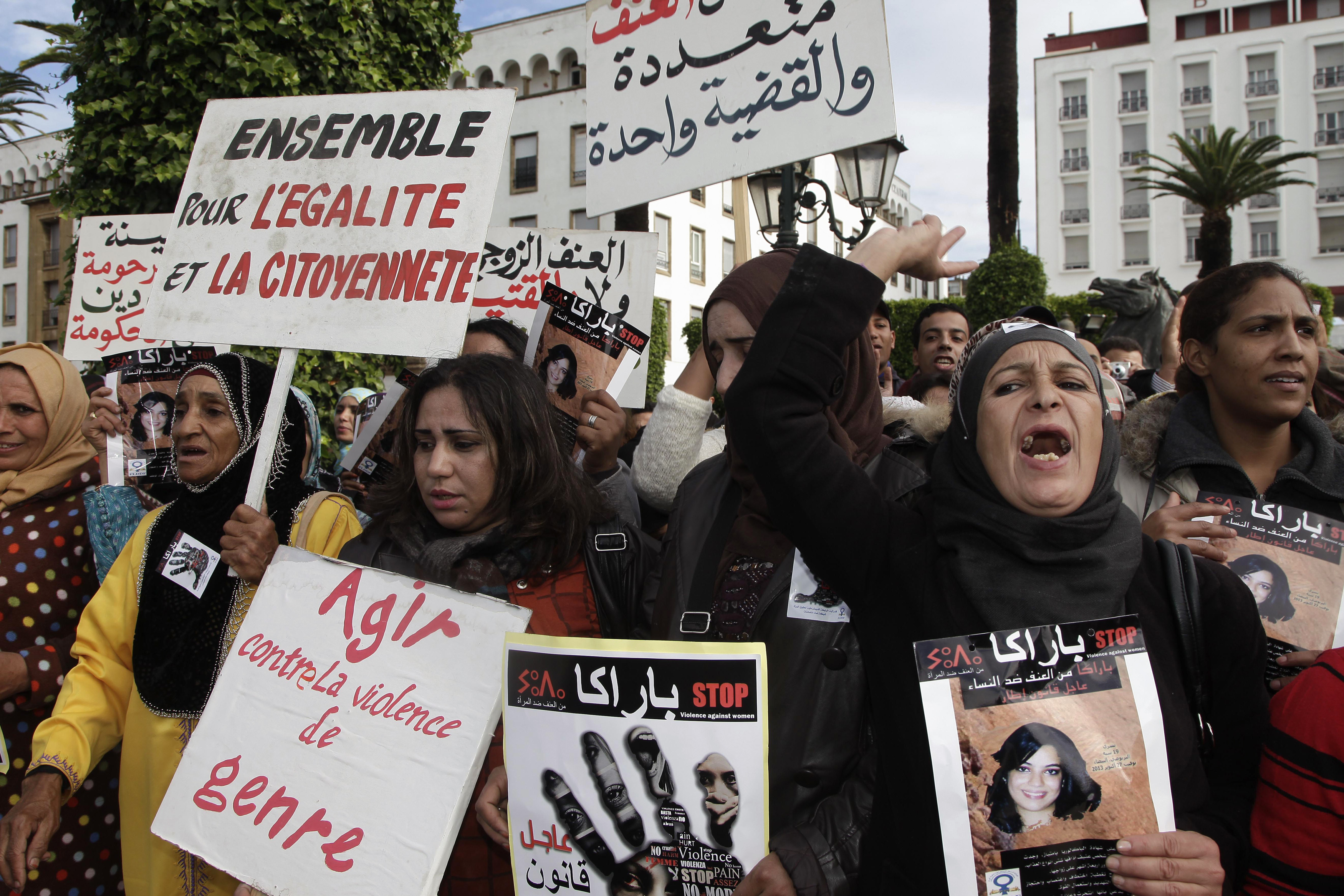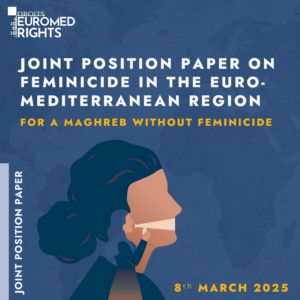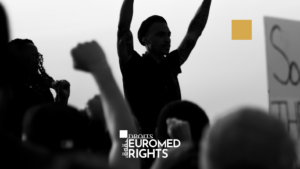Countries
Morocco/ Western Sahara

The 2011 Constitution endorsed the separation of powers, the primacy of human rights, the strengthening of the independence of the judiciary, the principle of non-discrimination, gender equality, the recognition of the Amazigh language, the importance of the role played by civil society and the right of petition. More than ten years after the adoption of the Constitution, several provisions, such as the reform of the judiciary, still need to be implemented in law and in practice.
In recent years, EuroMed Rights has consolidated its position as an actor for change in Morocco. The Moroccan Justice Reform Working Group pursued its advocacy and communication work in favour of human rights organisations and defenders and a Women’s Rights and Gender Equality Working Group was set up.
Limitations on freedom of demonstration and assembly remain commonplace in the Kingdom. In the specific context of Western Sahara, which is de facto administered by Morocco, violations of public and individual freedoms and the systematic repression of dissenting voices are committed in violation of Morocco’s international commitments. EuroMed Rights advocates for the extension of MINURSO’s mandate to examine the human rights situation.
Latest News

On March 8, International Women’s Rights Day, EuroMed Rights publishes a Joint Position Paper on femicides in Maghreb.
Recognizing that femicides know no borders, this position paper is part of a broader feminist mobilization across the Euro-Mediterranean region, where feminicides remain one of the most extreme expressions of

EuroMed Rights and 24 CSOs express deep concern about Ireland’s recent decision to designate Egypt , Morocco and Algeria as safe countries of origin
EuroMed Rights and 24 human rights non-governmental organisations have sent a letter to the Irish government expressing their deep concern about Ireland’s recent decision to designate Egypt, Morocco and Algeria
Related Pages
Euromed Standing Watch
The podcast amplifying Human Rights Voices
Training Guide
EU Advocacy
Related Members
Other Countries
Themes
Migration and Asylum
Restrictive migration policies and inadequate legislative protection across the Euromed (and beyond) mean that asylum seekers, migrants, and refugees face unique challenges in adjusting to life in their host countries.
Women's Rights and Gender Justice
EuroMed Rights strives to actively promote the rights of women and women’s participation in public life as well as promoting gender equality in the Euro-Med region.
Accountability, Justice and Space for Civil Society
In recent years, many governments across the Euro-Mediterranean region have tended to adopt ever more repressive measures and policies to curtail civil society activism and muzzle critical voices.
Democracy and Freedoms
The status of democracy and fundamental freedoms in the Euro-Mediterranean region has continued to backslide or remained at a negative status quo over the past three years.
Economic and Social Rights
A new regional programme of EuroMed Rights focuses on economic and social rights (ESR), building on our extensive work in Tunisia over the last years. The Network strives to put social justice concerns at the heart of its work.
